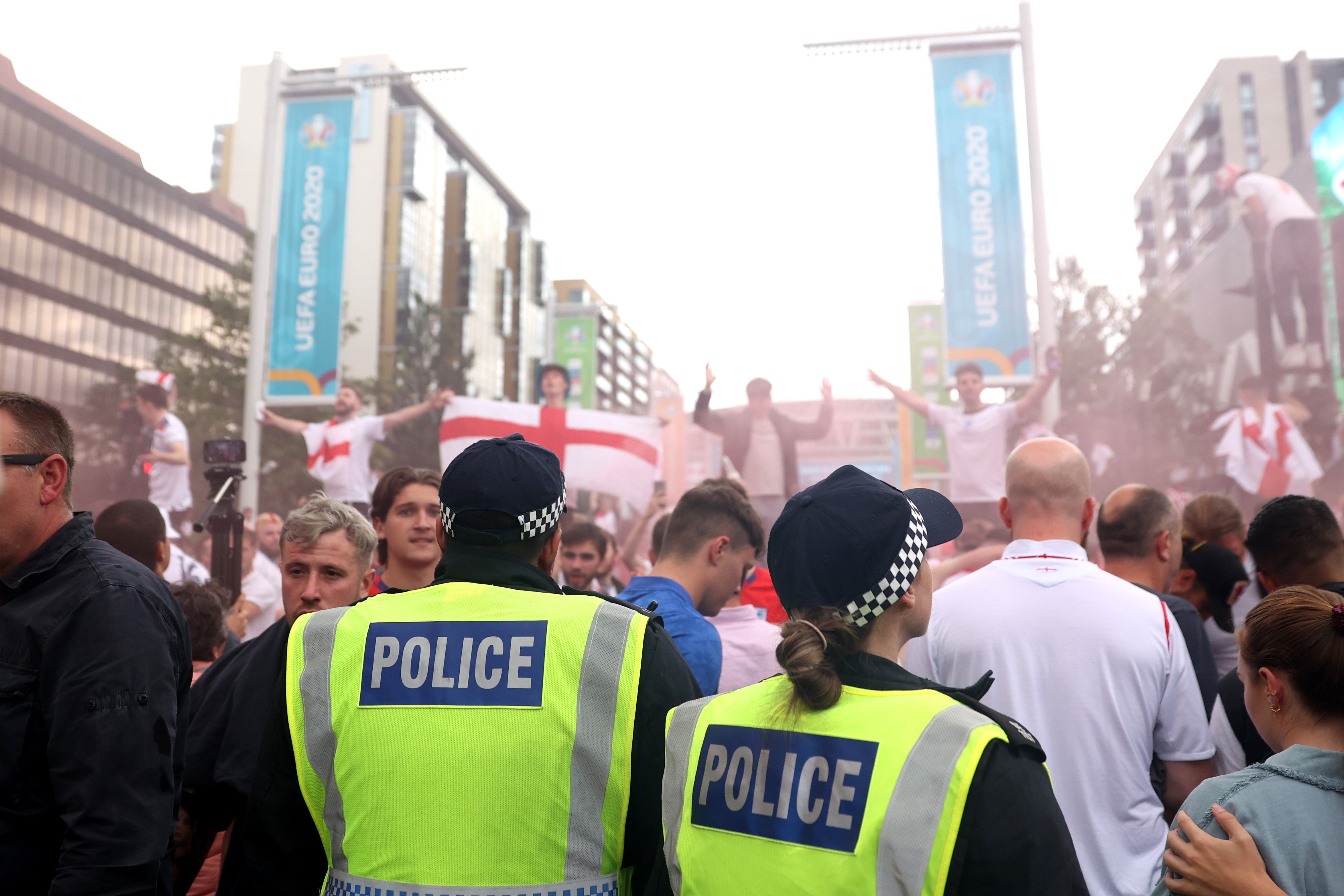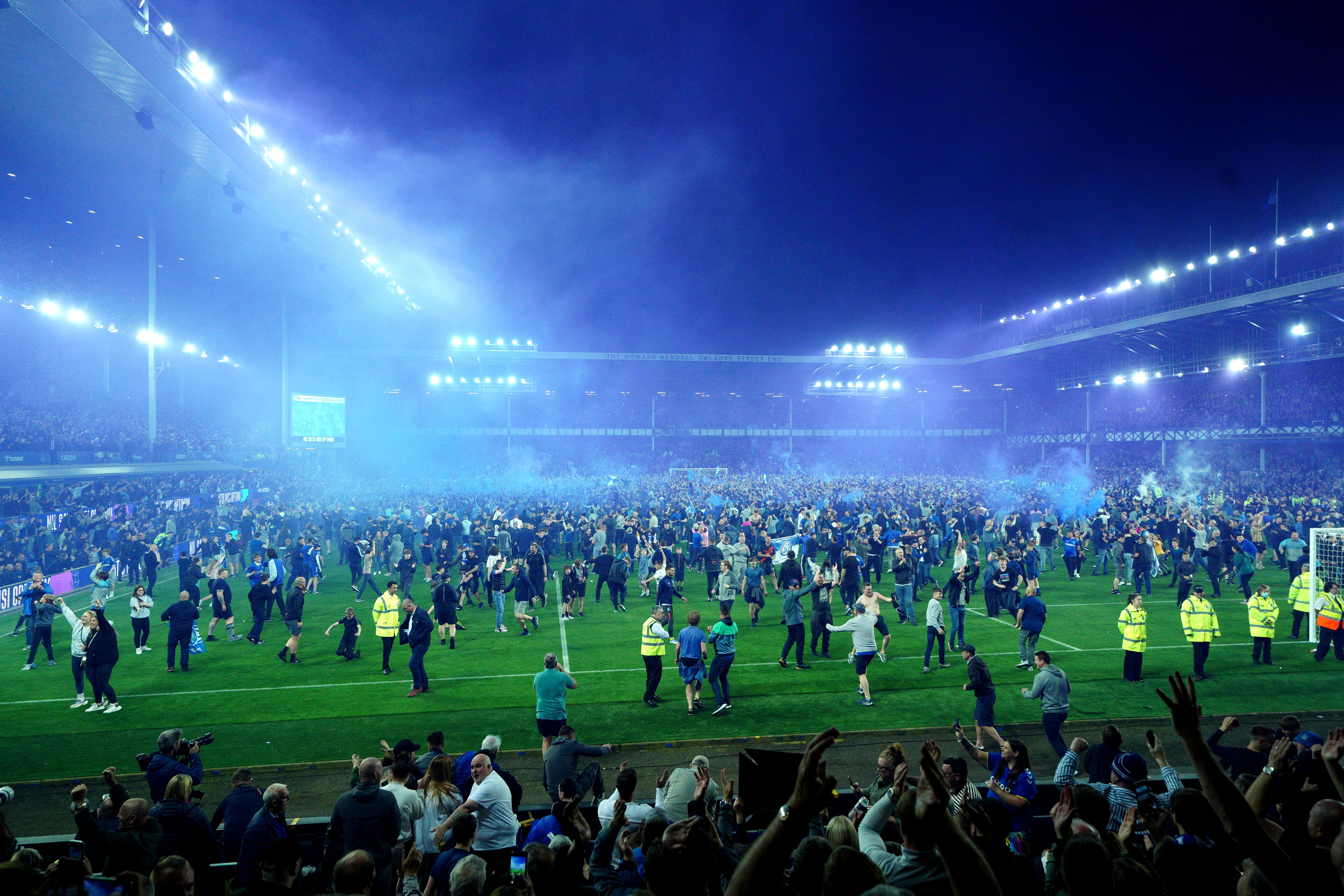Children as young as 10 being drawn into football hooliganism amid rising violence, police chief warns
Teenagers have been used to smuggle drugs and weapons into stadiums, head of UK football policing says

Your support helps us to tell the story
From reproductive rights to climate change to Big Tech, The Independent is on the ground when the story is developing. Whether it's investigating the financials of Elon Musk's pro-Trump PAC or producing our latest documentary, 'The A Word', which shines a light on the American women fighting for reproductive rights, we know how important it is to parse out the facts from the messaging.
At such a critical moment in US history, we need reporters on the ground. Your donation allows us to keep sending journalists to speak to both sides of the story.
The Independent is trusted by Americans across the entire political spectrum. And unlike many other quality news outlets, we choose not to lock Americans out of our reporting and analysis with paywalls. We believe quality journalism should be available to everyone, paid for by those who can afford it.
Your support makes all the difference.Children as young as 10 are being drawn into football hooliganism as violence and disorder rises at matches, a police chief has warned.
New figures show that in the 2021-22 season, more than 400 games saw disorder and anti-social behaviour incidents involving supporters aged 25 and under, and banning orders have been issued to children as a result.
Mark Roberts, the national lead for football policing, told The Independent the “worrying trend” was seeing teenagers being used to carry drugs and weapons into stadiums.
“We’re seeing younger supporters who are engaged in violence, banding together and actually seeking out pre-planned disorder,” he added.
“It’s a worrying trend both in terms of the nature of the violence and the fact that younger people are becoming involved.
“What we’re seeing in operations is a lot of younger children. We’ve identified kids as young as 10 knocking around with groups, we’re seeing those in their early teens travelling to away games.”
He was speaking after new official statistics showed a rocketing number of arrests related to English and Welsh football fixtures, including for rising violent disorder, pitch invasions and the dangerous use of pyrotechnics.
The number of arrests was 59 per cent higher than in 2018-19, which was the last normal year of play before the Covid pandemic, and the largest total for eight years.
Mr Roberts, who is the chief constable of Cheshire Constabulary, said operations in areas including Nottingham had found children being used to carry drugs and weapons under the “malign influence of older people”.
“The concern is that as well as the harm young people are causing to others, they are susceptible to exploitation by older and more sinister characters,” he added.
“If they get into that particular way of doing things, that’s a problem for the next 20 years or so.”
Factors believed to be contributing to the uptick in football disorder include the lifting of Covid restrictions after a period without matches, alcohol and cocaine use.
Mr Roberts warned that violence was not simply “dying down” after the pandemic and that serious incidents have been seen already in the new season, saying the reasons behind the increase will need “years of academic study to properly understand”.

PC Adam Collins, a football officer from Derbyshire Constabulary, previously told The Independent there was a new generation of fans who were children before March 2020 but can now drink and go to games unattended.
He said: “Before Covid they were a 15 to 16-year-old going to matches with their parents, then they were 17 or 18 and they had found beer, and they weren’t being kept an eye on.
“It was almost like a perfect storm and it did catch us all by surprise.”
PC Collins said that school closures during the pandemic caused engagement sessions run by local police forces to stop, leaving them scrambling to get on top of lost years of “communication and education”.
Of the 1,308 football banning orders in force as of 28 July, 36 had been issued to children aged between 10 and 17.
The number is expected to rise after a legal change in June lowered the threshold for the orders to be imposed, meaning they can be triggered by behaviour including the use of pyrotechnics or sending hateful online messages to players.
Police see the orders, which are in place for a minimum of three years and can see fans have their passports seized, as a major preventative tool and deterrent.
Mr Roberts said many football clubs also have programmes in place trying to divert fans, especially young men and boys, away from crime and behaviour that could see them slapped with an order.
“There’s a really strong network of activity where we will try to educate people and not unnecessarily criminalise young people,” he added.
“Whilst the emphasis is on us arresting, prosecuting and seeking banning orders for people criminally, equally as with all types of crime we’ve got the other strings to our bow regarding diversion and education.”



Join our commenting forum
Join thought-provoking conversations, follow other Independent readers and see their replies
Comments